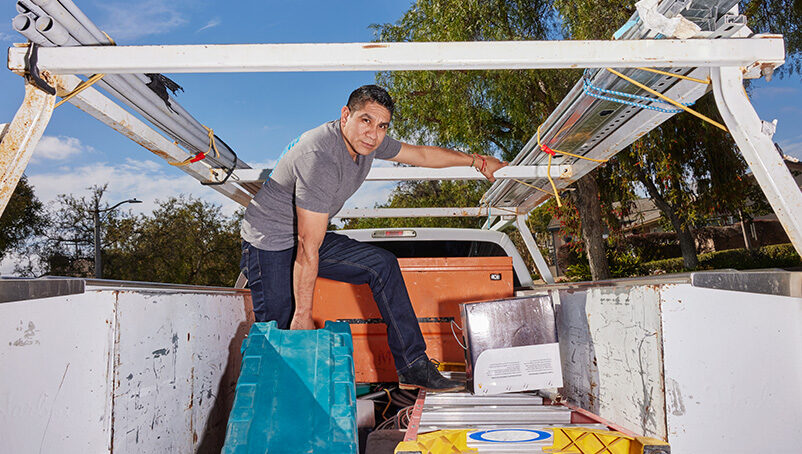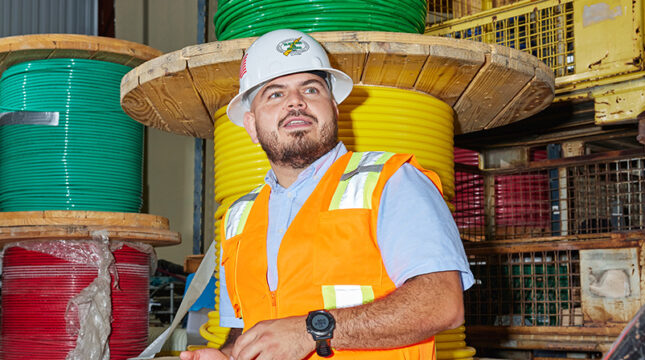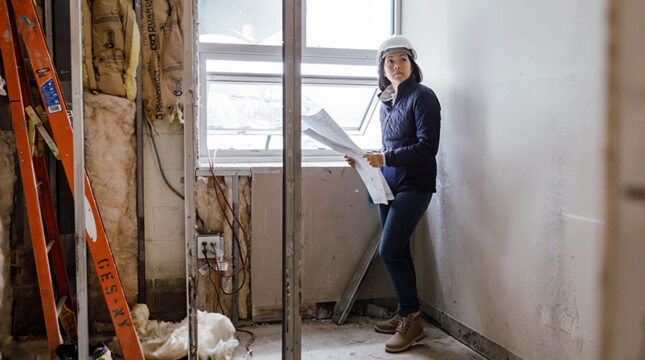How long does it take to get a MA general contractor license?
After submitting your application to become a licensed construction supervisor, allow 10 days for processing before scheduling your licensing exam. After mailing in your score report from the exam, it takes approximately 30 days for a license card to be issued.
If you’re registering as a home improvement contractor, your registration will arrive in the mail within one to two weeks after you’ve submitted the required documents and fees.
Massachusetts general contractor license renewal requirements
Massachusetts CSLs expire every two years. You must pay a $100 license fee and complete continuing education courses in order to renew your license. These courses should cover the following topics: code review, workplace safety, business practices/workers’ compensation, energy and lead-safe practices.
The required number of course hours varies according to the type of license you have:
- Unrestricted CSL: 12 hours
- Restricted CSL: 10 hours
- Specialty CSL: 6 hours
Massachusetts home improvement contractor registrations also expire every two years. You must pay a $100 fee and provide either a current copy of your business certificate (for individuals/sole proprietors) or a recent filing with the Massachusetts Secretary of the Commonwealth Corporations Division (for corporations) to renew your registration.
Reciprocity for Massachusetts general contractor licenses
Massachusetts does not recognize any out-of-state contractor licenses. A Massachusetts-issued CSL is required for any applicable work on buildings or structures in the state.
Out-of-state businesses must register as home improvement contractors if they plan to perform this type of work in Massachusetts. These businesses must provide a foreign corporation certificate of registration from the Massachusetts Secretary of the Commonwealth with their registration application.
Local general contractor business license requirements
The state-mandated requirements are the first few steps to your general contractor business in Massachusetts, but you should also check the local regulations.
Boston
In Boston, general contractors must obtain a business certificate through the city clerk’s office and renew it every four years.
Contractors must also provide a valid copy of their Home Improvement Contractor (HIC) registration issued by the Massachusetts Office of Consumer Affairs and Business Regulation and a copy of a Construction Supervisor License (CSL) issued by the Massachusetts Office of Public Safety and Inspections.
Boston doesn’t require any city-specific insurance other than state-prescribed workers’ compensation insurance and commercial auto insurance.
Stay up to date with Boston’s inspection services here.
Worcester
In Worcester, general contractors need to register as new contractors and attach a copy of their insurance binder as part of the process. This requirement is specific to Worcester and is in addition to any state-level licensing requirements.
For certain types of work like drainlaying, a specific Drainlayer License for general contractors is required.
Worcester mandates contractors to submit a certificate of insurance with the City of Worcester named as an additional insured party.
Additionally, contractors must have their tradesperson license and a copy of their Workers’ Compensation insurance documentation on file with the Department of Inspectional Services or attached to any submitted application for a permit.
All of the above are city-specific requirements that go beyond the state mandates.
Stay up to date with Worcester’s local laws and trade permits here.
What insurance does a general contractor need in Massachusetts?
In addition to getting your CSL or registering as a HIC, you may want general contractor insurance to protect your business. Consider the following types of Massachusetts business insurance for general contractors:
General liability insurance
General liability insurance can help provide coverage for common work-related accidents that can occur in construction, like damage to someone’s property or a third-party injury.
Workers’ compensation insurance
If an employee gets hurt on the job, workers’ compensation insurance can help provide coverage for wage protection and medical expenses. In the Commonwealth of Massachusetts, all employers must have workers’ comp coverage.
This requirement extends to out-of-state employers operating in Massachusetts.
Tools and equipment insurance
Tools and equipment insurance can help cover repairs and replacements if your work gear is stolen or damaged.
Commercial auto insurance
Commercial auto insurance can help protect general contractors who drive for work by covering accident-related expenses, such as property damage and medical costs.
Commercial property insurance
If you own or rent property for your business, commercial property insurance can help provide coverage for damage and vandalism.
Massachusetts does not require construction supervisors to obtain insurance to be eligible for licensure or registration.







